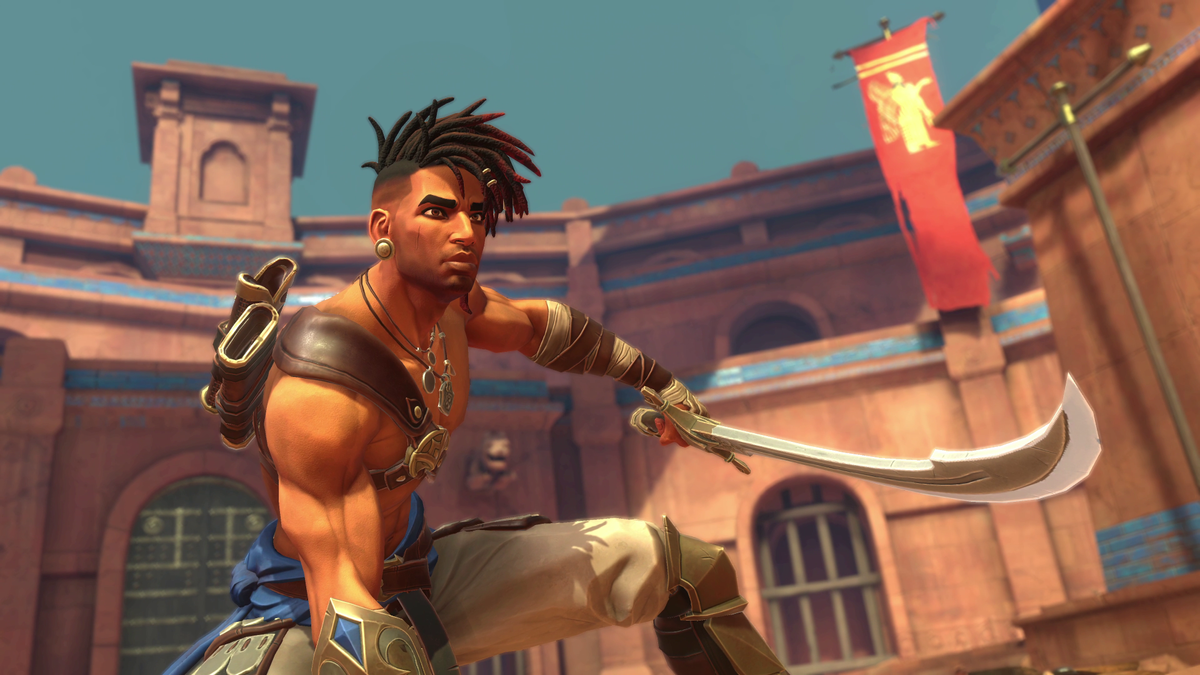Larian director of publishing Michael Douse, never one to be shy about speaking his mind, has spoken his mind about Ubisoft’s decision to disband the Prince of Persia: The Lost Crown development team, saying it’s the result of a “broken strategy” that prioritizes subscriptions over sales.
Prince of Persia: The Lost Crown is quite good. PC Gamer’s Mollie Taylor felt it was dragged down by a very slow start, calling it “a slow burn to a fault” in an overall positive review, and it holds an enviable 86 aggregate score on Metacritic. Despite that, Ubisoft recently confirmed that the development team has been scattered to the four winds to work on “other projects that will benefit from their expertise.”
This, Douse feels, is at least partially the outcome of Ubisoft’s focus on subscriptions over conventional game sales—the whole “feeling comfortable with not owning your game” thing espoused by Ubisoft director of subscriptions Philippe Tremblay earlier this year—and the decision to stop releasing games on Steam, which is far and away the biggest digital storefront for PC gaming.



Gamers be like “We don’t mind not owning our games as long as we don’t own them through the monopoly that we like, ok?”
If you’re talking about Steam, while it provides its own DRM system, games can be published on there without any DRM whatsoever, so you can do whatever you want with the downloaded files and then play the game without Steam.
And baldur’s gate 3 is one such game, it only runs the steam service (which includes a check that you actually can play the game either through ownership or family sharing) when steam is actually running so you can join multiplayer properly.
Oh so you can resell your used copy?
Plenty of people sell accounts with a specific game activated on it.
I guess you could sell a literal copy, yeah. But ironically, the lack of DRM binding that copy to an account by a user makes a “proof of original ownership” harder, if that’s what you want.
That’s not how it works with digital goods, but that’s a limitation of digital goods really.
It is really both, the law tries way too hard to pretend digital data is goods that can be thought of in individual instances like physical goods can. That is how misconceptions like “owning” or “reselling” are put into people’s heads in the first place.
Valve has a good track record, and you’ve never owned a game in your life. They’ve always been a license, with few exceptions. Even physical media.
The difference being that I can resell a physical media, even at a profit if there’s enough demand for it, and to most people that’s the definition of ownership.
Defining ownership as “can I sell this” is ridiculous
If you can’t dispose of it by selling it to someone else, your don’t own it. Notice how even DRM free games are just the purchase of a license and the distributor can revoke your right to use that license? Yeah, do you don’t own DRM free games either.
Indeed but being able to dispose of something by selling it does not automatically means you owned it
Unless you’re acting as a proxy for the owner, yes it does.
If you buy something out of some guy’s trunk in a parking lot, it does not mean that guy owned it before selling it to you.
If that’s the definition of ownership we’re going with, does the fact that I can sell my steam account mean I do actually own every game on it regardless of DRM? Also, does a lack of a demand for a game degrade your ownership?
You can’t though (not by following the terms you agreed to) and Valve can ban you or remove your right to use the license you paid for whenever they want.
Mostly yes, especially if you’re a big AAA publisher, so your game won’t get buried under cheap shovelware and the latest AAA slop. Also don’t forget that Steam barely does any moderation, especially once you become a power user, so hate groups will buy your game, leave a negative review, then refund it, because a YouTuber named Prof. Chud called it anti-white and anti-male…
You don’t know the definition of monopoly then
Yes I do and yes one platform is in a monopolistic position and people keep defending them.
Let me guess, Windows also not a monopoly, because Linux exist, and it’s just a loud minority that doesn’t like their data monitored by third parties for “ad” purposes.